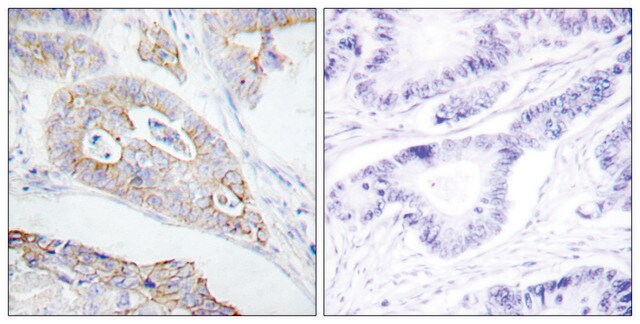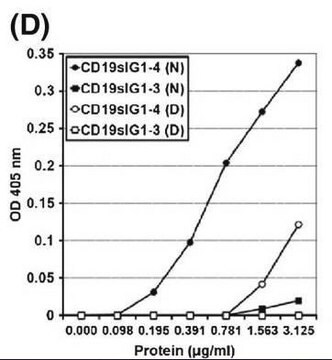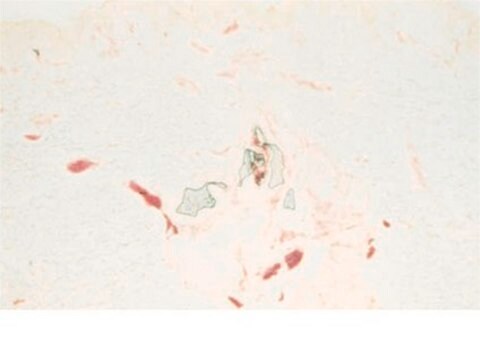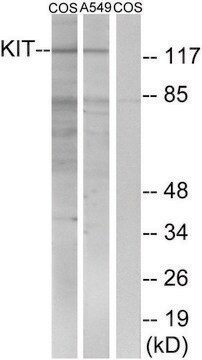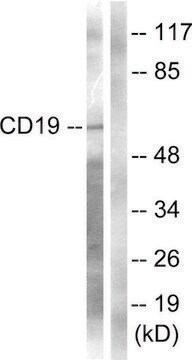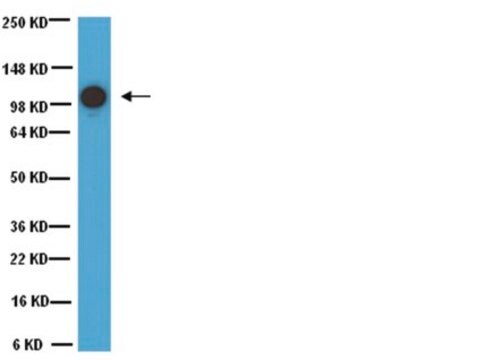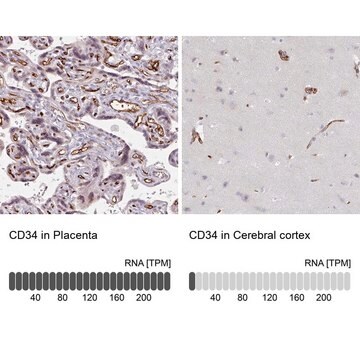MAB4315
Anti-STRO-1 Antibody, clone STRO-1
ascites fluid, clone STRO-1, Chemicon®
About This Item
Prodotti consigliati
Origine biologica
mouse
Livello qualitativo
Forma dell’anticorpo
ascites fluid
Tipo di anticorpo
primary antibodies
Clone
STRO-1, monoclonal
Reattività contro le specie
human, primate
Produttore/marchio commerciale
Chemicon®
tecniche
flow cytometry: suitable
immunofluorescence: suitable
input
sample type mesenchymal stem cell(s)
Isotipo
IgM
Condizioni di spedizione
dry ice
modifica post-traduzionali bersaglio
unmodified
Descrizione generale
Specificità
Immunogeno
Applicazioni
Risultati analitici
Bone marrow cultures
Note legali
Non trovi il prodotto giusto?
Prova il nostro Motore di ricerca dei prodotti.
Codice della classe di stoccaggio
10 - Combustible liquids
Classe di pericolosità dell'acqua (WGK)
WGK 1
Punto d’infiammabilità (°F)
Not applicable
Punto d’infiammabilità (°C)
Not applicable
Certificati d'analisi (COA)
Cerca il Certificati d'analisi (COA) digitando il numero di lotto/batch corrispondente. I numeri di lotto o di batch sono stampati sull'etichetta dei prodotti dopo la parola ‘Lotto’ o ‘Batch’.
Possiedi già questo prodotto?
I documenti relativi ai prodotti acquistati recentemente sono disponibili nell’Archivio dei documenti.
Articoli
Frequently asked questions about mesenchymal stem cells including MSC derivation, expansion, differentiation and allogenic stem cell therapy.
Protocolli
Information about mesenchyme, specifically mesenchymal stem cell procotols. Step-by-step cell culture protocols for mesenchymal stem cell (MSC) isolation, expansion and differentiation.
Il team dei nostri ricercatori vanta grande esperienza in tutte le aree della ricerca quali Life Science, scienza dei materiali, sintesi chimica, cromatografia, discipline analitiche, ecc..
Contatta l'Assistenza Tecnica.